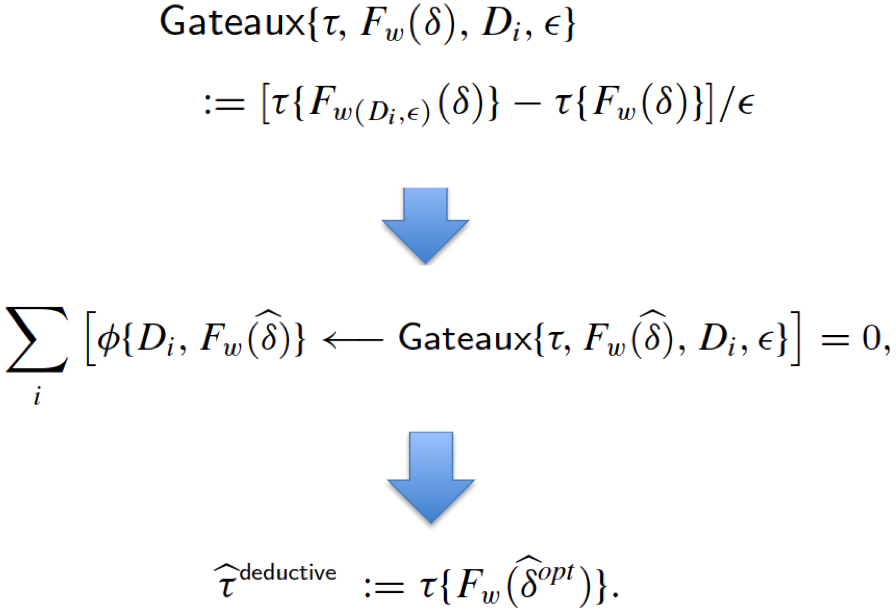Abstract
Researchers often seek robust inference for a parameter through semiparametric estimation. Efficient semiparametric estimation currently requires theoretical derivation of the efficient influence function (EIF), which can be a challenging and time-consuming task. If this task can be computerized, it can save dramatic human effort, which can be transferred, for example, to the design of new studies. Although the EIF is, in principle, a derivative, simple numerical differentiation to calculate the EIF by a computer masks the EIF’s functional dependence on the parameter of interest. For this reason, the standard approach to obtaining the EIF relies on the theoretical construction of the space of scores under all possible parametric submodels. This process currently depends on the correctness of conjectures about these spaces, and the correct verification of such conjectures. The correct guessing of such conjectures, though successful in some problems, is a nondeductive process, i.e., is not guaranteed to succeed (e.g., is not computerizable), and the verification of conjectures is generally susceptible to mistakes. We propose a method that can deductively produce semiparametric locally efficient estimators. The proposed method is computerizable, meaning that it does not need either conjecturing, or otherwise theoretically deriving the functional form of the EIF, and is guaranteed to produce the desired estimates even for complex parameters. The method is demonstrated through an example.
Keywords Compatibility; Deductive procedure; Gateaux derivative; Influence function; Semiparametric estimation; Turing machine.
